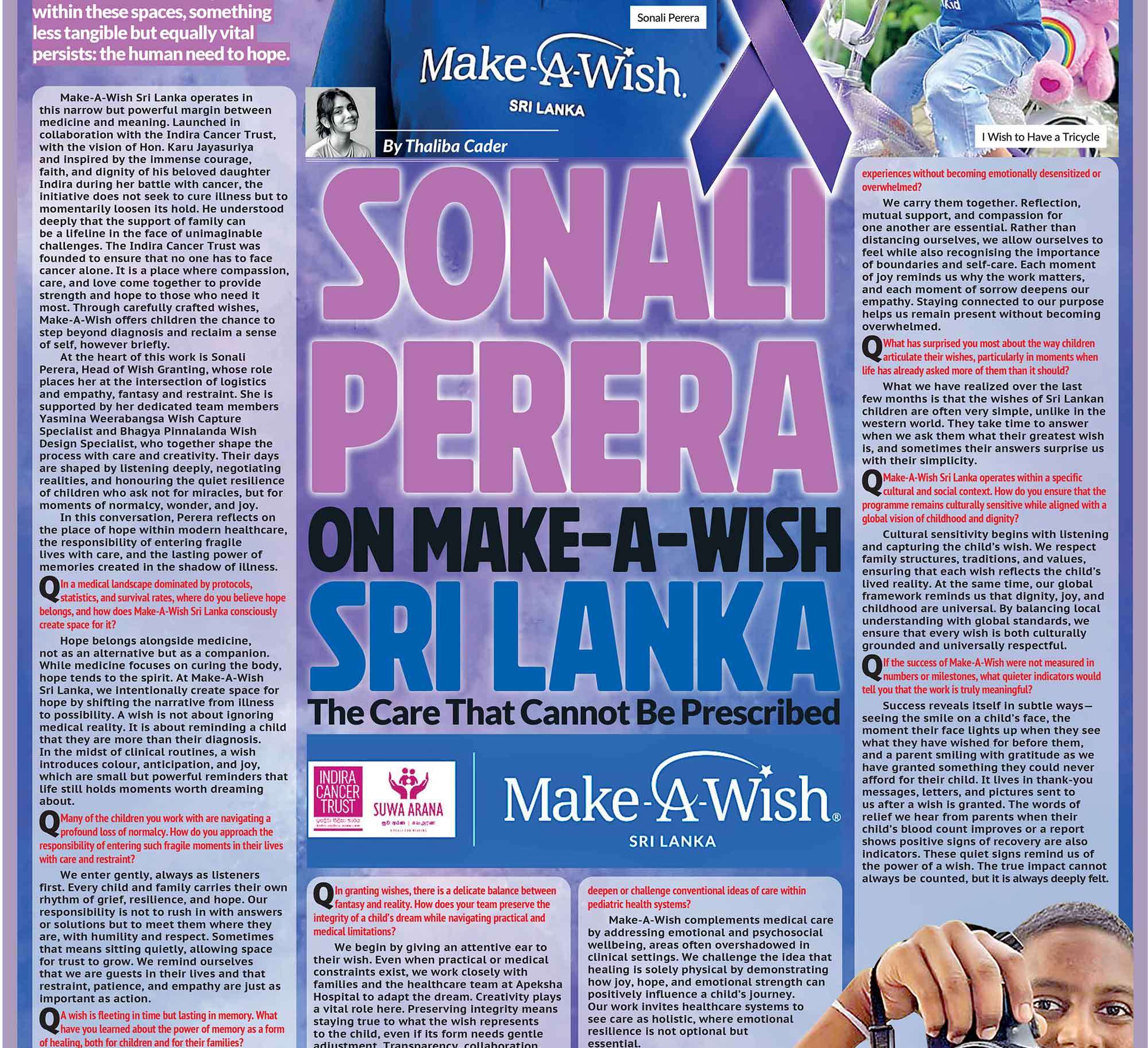“I’ve carried more dead bodies than most people have seen,” he said once, with the quiet frankness of someone who’s lived too many lives in one. “They said if I learnt to draw funeral posters, I could’ve made some decent money.” Someone taught him how, the fonts, the flourishes, the faded flowers, but he never followed through. “I didn’t want to draw for money,” he shrugged. “First, there was the environment.”
His earliest education, Mune insists, began at “John’s school” his father's name. Then came Leelawathi Central College, his mother, and later, the Open University. But his truest classroom was his home, which he turned into an open gallery, a space where local children could learn art for free. That space was eventually torn down by the Governor of Kurunegala. Yet, the art survived.
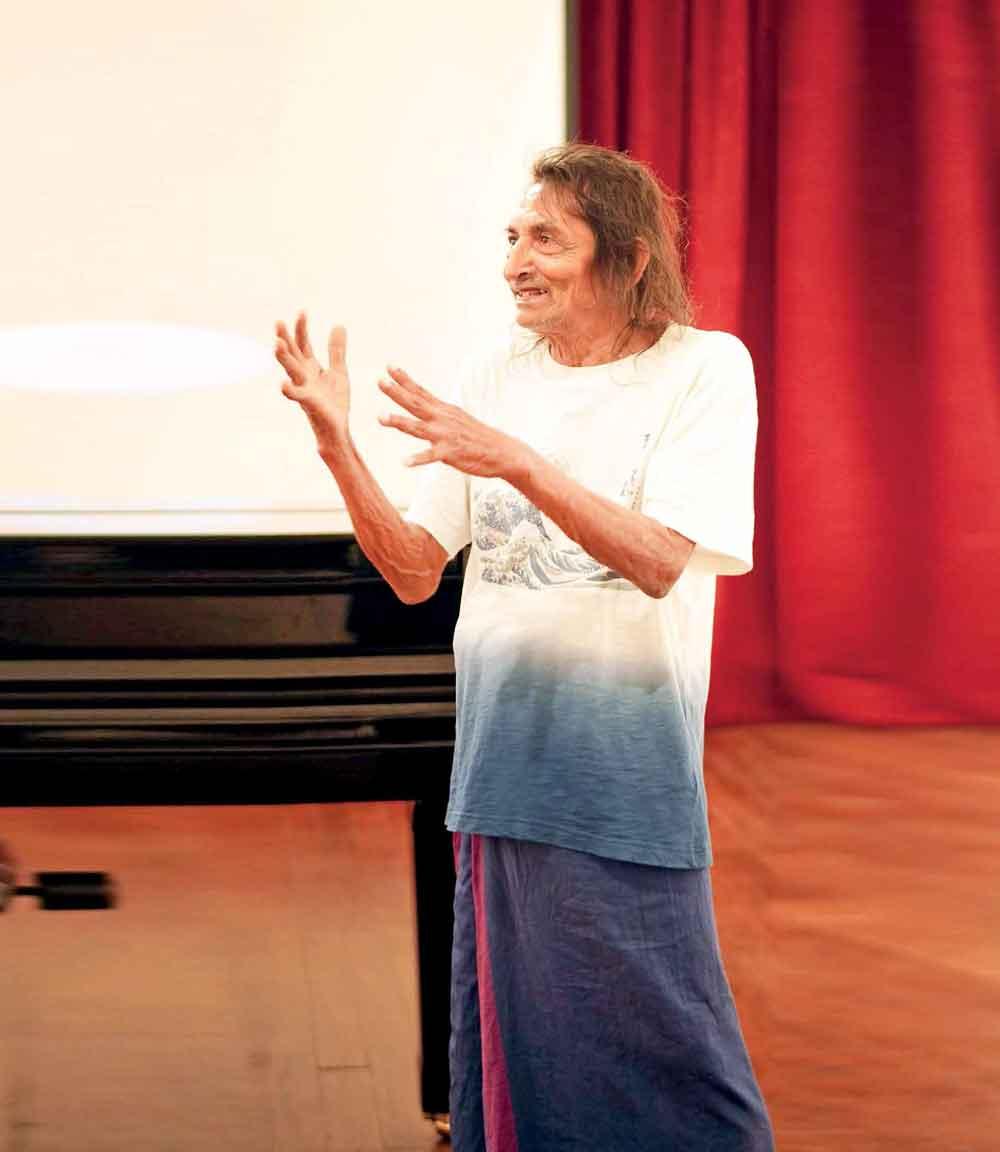
Now, at the Alliance Française de Colombo, a collection of Mune’s past and present works stands as a silent yet powerful witness to his journey, each piece bursting with colour, memory, and truth. Accompanied by a short film on his eco-art studio, The Shrubbery, the exhibition is both retrospective and intimate.
“I never thought of doing an exhibition like this,” he confessed. “But my daughter insisted. I said, ‘Do whatever.’” He speaks not like a man chasing legacy, but one who has already made peace with it. “I’ve come to a midpoint with reality. I have so many paintings, it’s not magic to me anymore.”
But magic is exactly what it feels like. His works do not conform to a single style or timeline. Some feel like echoes from dreams, others like splinters of a brutal reality. “It doesn’t seem like it was done by one person,” a viewer murmured at the opening. And rightly so, each painting captures a distinct story, frozen in time, never continued. That is Mune’s gift: to pause a moment so completely, it breathes forever on canvas.
In Kurunegala, far from the polished galleries of Colombo, lived a man whose life was a canvas; unframed, raw, and deeply human. Munasinghe Veda Arachchige, affectionately known as Mune, never trained in art schools or sat in critique circles. He worked in a coffin store.
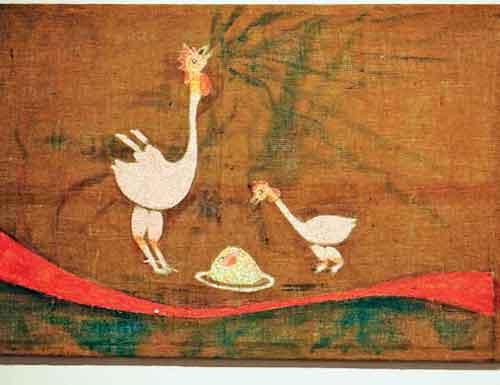
Coca-Cola and Chicken-Fried Rice
An exploration of neo-colonialism and the subtle conquest of Sri Lankan society—not by weapons, but through fast food, branding, and cultural erosion.
Oil on jute | 157 x 121 cm | 2024
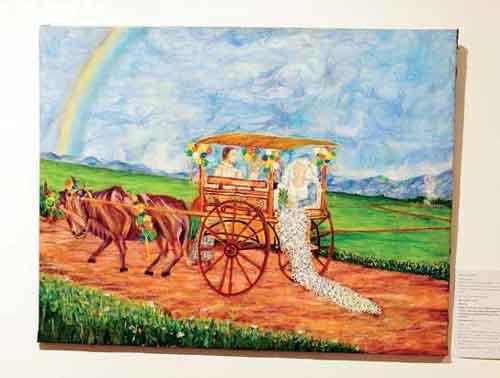
Memories of Childhood: Wedding Couple
A story told to Mune by his mother: after registering their marriage, she and her husband were driven in the second of two bullock carts; the first one led with music. Martin Transporter, the cart owner, appears in this nostalgic scene.
Oil on canvas | 38.5 x 26 inches | 2024
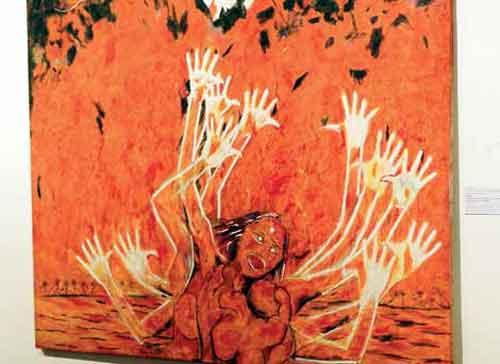
Nandikadal
Based on a true confession by a soldier at the end of the civil war in 2009, this powerful piece captures the psychological burden of war.
Oil on canvas | 180 x 152 cm | Unknown
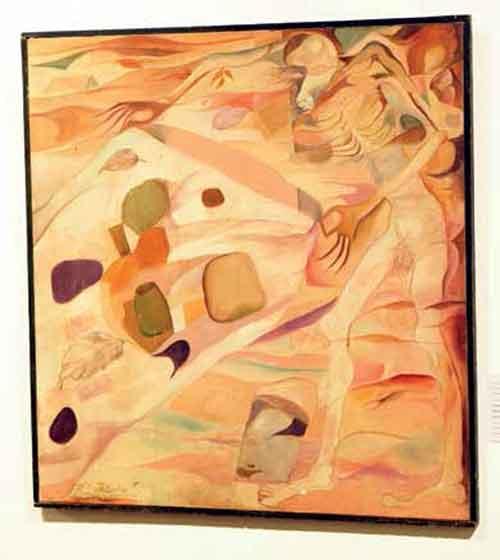
The Poor
A poetic portrait of poverty, even the wind, Mune says, does not allow the beggar peace to dry his only sarong.
Oil on canvas | 76 x 72 cm | 1992
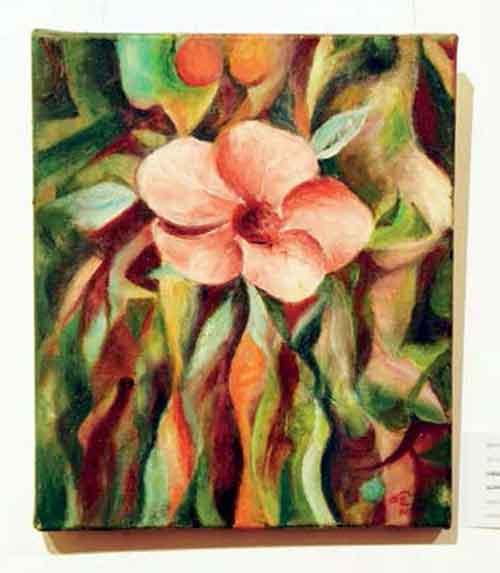
Mother
A tender portrait honouring Mune’s mother, painted with love and simplicity.
Oil on canvas | 30 x 26 cm | 2024
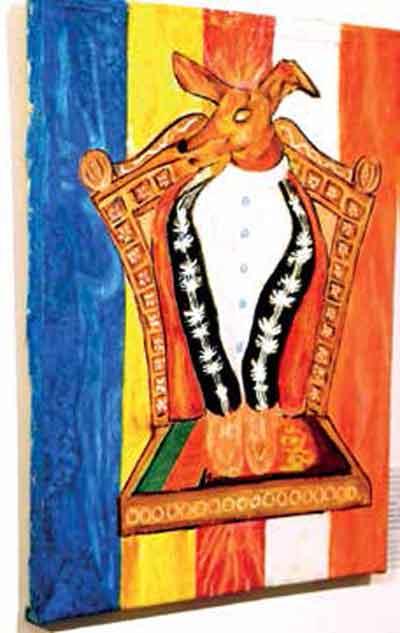
A Fox
A sharp political commentary on the corruption of a former Kurunegala city mayor who sanctioned the demolition of a priceless archaeological site to construct a commercial shopping center and permitted illegal housing on reserved land.
Oil on canvas | 65 x 50 cm | 2021
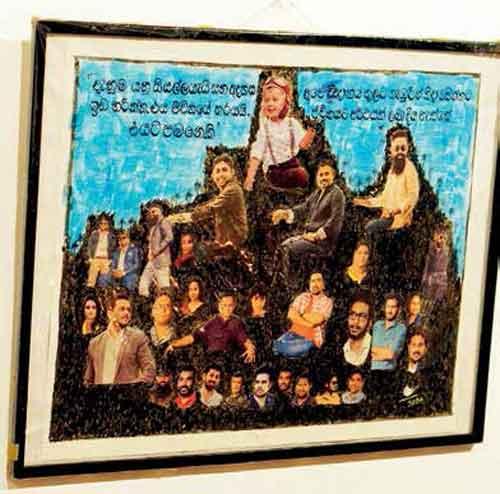
Education Became a Business
What was once a noble act of passing down knowledge has become a profit-driven industry. This piece critiques Kurunegala’s transformation into a hub of private tuition classes.
Mixed media | 68 x 52 cm | 2024
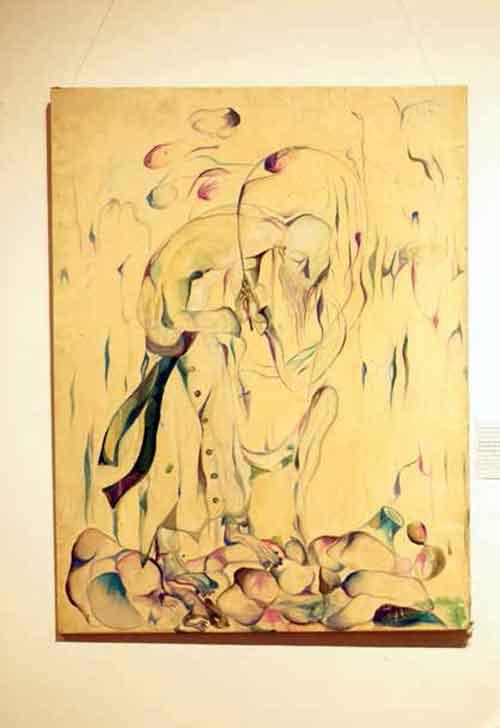
The World May Have No Food Left to Eat
A symbolic reflection on scarcity and survival. A father fishes from a shrinking puddle while a lizard waits to snatch his only hope, a haunting metaphor for modern struggles.
Oil on canvas | 96.5 x 73.5 cm | 1992
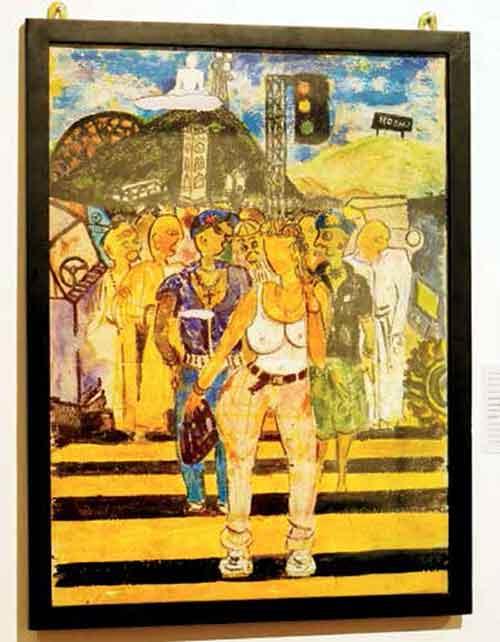
Kurunegala, A Changing City
A visual lament on the transformation of Mune’s once-familiar village into a faceless consumerist city, driven by values far removed from its roots.
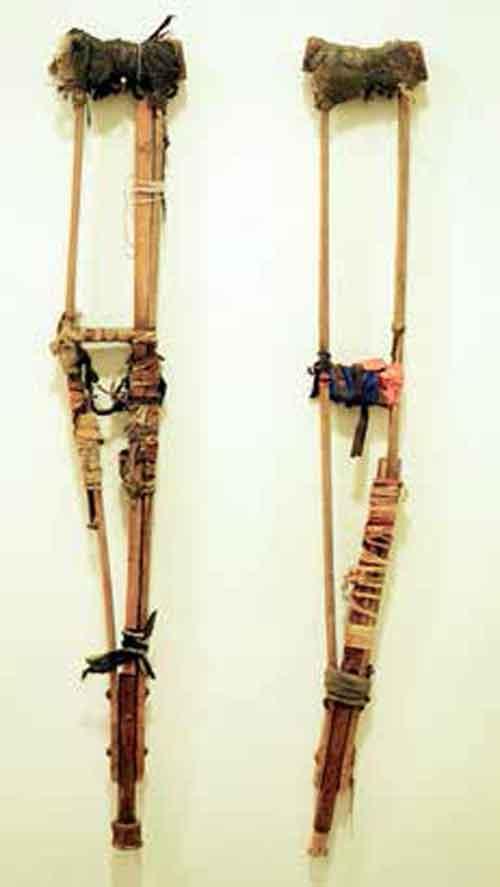
Economy of Sri Lanka
A stark visual representation of Sri Lanka’s recurring economic crises and the structural challenges faced by the nation.
Mixed media | 75 x 55.5 cm | 2017
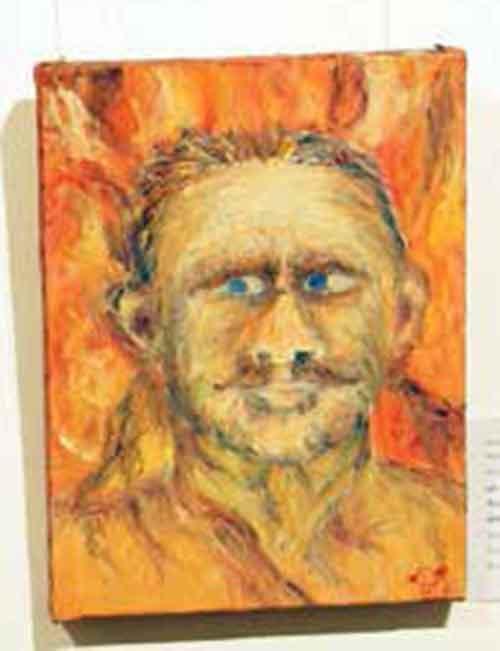
Memories of Childhood: Loku Punchi Amma
Inspired by a vivid memory: as a child, Mune watched his uncle smoke a cigarette and hand it to his wife, a moment frozen in familial warmth and intimacy.
Oil on canvas | 30 x 25 cm | 2024
An outsider artist by definition, but perhaps the most inside when it comes to capturing the pulse of human experience, Mune lets the art speak for itself. And in doing so, it speaks for him; louder than words ever could.











